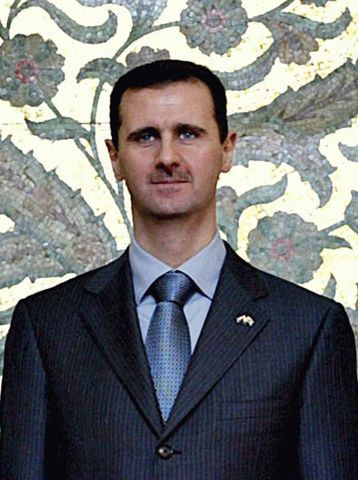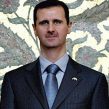
Is Syria Cooperating Militarily with Turkey Against the PKK?
Publication: Terrorism Monitor Volume: 8 Issue: 35
By:

Recent media reports suggest that a new phase of Syrian-Turkish military cooperation has begun against Kurdish militants of the Parti Karkerani Kurdistan (PKK – Kurdistan Workers Party) in Syria. However, a closer examination of the rapprochement between Damascus and Ankara and their respective policies on Kurdish nationalism reveals accounts of greater military cooperation may be premature.
In the past, Syria has supported the PKK against Turkey and allowed the PKK to recruit Syrian Kurds to fight against Turkey. [1] However, this changed after Syria decided to force PKK leader Abdullah Öcalan out of the country in 1998, when Turkey threatened to invade Syria. After 1998, Syria started to crack down on remaining PKK networks and forged better ties with Turkey. On Öcalan’s orders, most PKK rebels moved to the Qandil Mountains of northern Iraq.
The PKK created the ethnic-Kurdish Partiya Yekiti ya Demokratîk (PYD – Party of Democratic Union) in Syria in September 2003. This party was targeted by the Syrian state, as were other Kurdish political parties in Syria. Hundreds of its members were arrested and PYD meetings were repressed by Syrian security forces. Some PYD supporters were killed during PYD-organized Kurdish New Year celebrations in the town of al-Raqqa near Aleppo in March 2010. [2] Despite this, Öcalan, the currently imprisoned PKK leader, remains positive about Syria, suggesting “Syria will not take part in the annihilation concept of the Kurds,” in a statement published by a pro-PKK news agency (Ajansa Nuceyan a Firate [ANF], June 18).
Syria maintains good ties with Turkey out of concern over Kurdish nationalism, perceived as a threat in both countries. Syria especially fears that the new Kurdish autonomous region in Iraq could affect its own Syrian Kurds. [3] Unrest in the north-eastern Syrian city of al-Qamishli in 2004 convinced Damascus to take harsher measures against Kurdish nationalists. Kurds are the largest ethnic minority in Syria, with their community of 3 million forming 16% of the population. The Syrian government is highly critical of federalism in Iraq, and prefers a strong central Iraqi government. Unlike Turkey and Iran, Syria does not have a consulate in the Kurdistan region of northern Iraq.
Ties between the two nations have also grown due to the increasingly assertive foreign policy of Turkey’s ruling Adalet ve Kalkinma Partisi (AKP – Justice and Development Party). The Turkish-Syrian rapprochement began before the Islamist AKP came to power in 2002. Previously in 1999, Syria had signed the Adana Treaty on security cooperation with Turkey. [4] The seven years of rapprochement under the AKP have brought about a significant strengthening of Syrian-Turkish ties. [5] This has resulted in visa-free travel between Syria and Turkey and joint cabinet-level meetings. These good relations have created positive changes for the Kurds in Syria, since Kurds in both countries no longer need visas for cross-border visits. [6]
Last summer media reports suggested there was new Syrian-Turkish security cooperation against the PKK. According to the state-run Anatolian News Agency (ANA, a.k.a. Anadolu Ajansi), 400 PKK members were arrested in the Syrian cities of Aleppo, Kamishli, Afrin, al-Hasaka and Ar-Raqqa and 11 PKK fighters were killed in joint Turkish-Syrian operations at the end of June 2010 (ANA, July 1). In addition, sanctions were taken against Kurdish families supporting the PKK. The New York Times described this as a sign of growing Syrian cooperation with Turkey (July 1). There were also claims that Israeli-made Heron drones from Turkey were used against the PKK in Syria (Gazete Vatan, July 23). At the same time, Turkish media talked about clashes between the PKK and Shi’a militants in Lebanon (Hürriyet, July 13). But Turkish security analyst Emrullah Uslu thinks it is unlikely that Herons would be used in Syria. [7] The PKK has no armed presence in Syria or Lebanon.
The PKK’s news agency described accounts of both incidents as “lies” by the Turkish state (ANF, July 17). PKK leader Abdullah Öcalan remarked he does not believe Syria would kill Kurds (ANF, July 18). PKK spokesperson Roj Welat told Jamestown that Turkey is providing misinformation to the public in order to convince Syria to work with Turkey against the PKK. [8] He stated, “There were no such clashes between Syrian military forces and the PKK. Of course they are arresting Kurds and oppressing Kurdish people in Syria, but there have been no such clashes as the Turkish media claims.”
PYD member Shirwan Hassan confirmed a total of 400 PYD supporters have been arrested in Syria in the last three years but not just in the last summer, as reported. [9] During the last Newroz event in Ar-Raqqa, several PYD members were arrested. Other Kurdish politicians like Sherko Abbas and Kurdistan Democratic Party Syria (KDP-S) secretary Ebu Sabir say not only PKK members were arrested in the recent years, confirming there are frequent arrests of Kurdish political activists in Syria. [10]
Syrian President Assad indicated that he did not know anything about the alleged military operations, but said that security meetings with Turkey are not new and happen on a regular basis. The Syrian leader said that his country could give amnesty to “1,500 Syrian-origin terrorists within the PKK” to contribute to a solution of the Kurdish issue in Turkey (Today’s Zaman, July 17). Assad has been clear that military means alone will not solve the Kurdish issue, stating, “We embrace anyone who lays down arms because our goal is not to take revenge but to end terrorism. We cannot end terrorism by hunting terrorists. Because every terrorist killed is replaced by another one” (Today’s Zaman, July September 17).
It seems as though reports of a wave of arrests of 400 people and military operations against the PKK have been exaggerated. Syria is neither obtaining military support from the Turkish army against the PKK nor is Turkey pressuring Syria to do more against the PKK, although political and security cooperation continues to expand. It is likely that in the future Syrian-Turkish cooperation will continue, especially after the recent rise in tension between Turkey and Israel. Syria and Turkey will need such cooperation to curtail the threat posed by Kurdish nationalism, which has typically taken advantage of cross-border refuges in Syria and Iraq when pressured by the Turkish military.
Notes:
1. Human Rights Watch, “Group Denial: Repression of Kurdish Political and Cultural Rights in Syria,” https://www.hrw.org/en/node/86735.
2. “Three young Kurds shot dead, 41 injured at a Newroz event in Syria,” International Support Kurds in Syria Association, March 21, https://supportkurds.org/news/three-young-kurds-shot-dead-41-injured-at-a-newroz-event-in-syria/.
3. F. Stephen Larrabee, "Turkey Rediscovers the Middle East," Foreign Affairs 86(4), July/August 2007, pp.103-114.
4. Author’s interview with PKK spokesperson Roj Welat, August 2, 2010.
5. Human Rights Watch, op cit.
6. Author’s interview with Syrian Kurdish journalist Sirwan H. Berko, July 28, 2010.
7. Author’s interview with Turkish security analyst Emrullah Uslu, July 28 2010.
8. Soner Cagaptay, "AKP reshuffles Turkey’s neighbors," Middle East Strategy at Harvard (MESH), October 26, 2009, https://blogs.law.harvard.edu/mesh/2009/10/akp-reshuffles-turkeys-neighbors/.
9. Author’s interview with a PYD member who is responsible for external contacts of the PYD in the Netherlands, September 2, 2010.
10. Author’s interview with KDP-S secretary in Iraq, August 14 and Dr. Sherkoh Abbas, President of the Kurdistan National Assembly of Syria, August 1, 2010.





